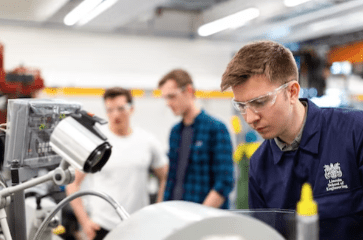
Mechanical engineering is a dynamic field that offers many exciting career opportunities. Whether you are a recent graduate or contemplating a career change, understanding the potential pathways in mechanical engineering can help you make an informed decision. Here, Steve Lacaj shares the various career opportunities available in mechanical engineering.
Product Design and Development
Product design and development is one of the most common career paths for mechanical engineers. This involves creating new and innovative products or improving existing ones.
Mechanical engineers are crucial in designing, prototyping, and testing products across various industries, including automotive, aerospace, consumer goods, and medical devices. They work closely with cross-functional teams, utilizing their technical expertise to bring ideas to life.
Manufacturing and Process Engineering
Mechanical engineers passionate about optimizing manufacturing processes can pursue a career in manufacturing and process engineering. This field involves designing efficient production systems, improving quality control measures, and implementing automation technologies.
Manufacturing engineers work on the shop floor, collaborating with technicians and production teams to ensure smooth operations and cost-effective manufacturing processes.
Energy and Power Systems
With the growing global concern for sustainable energy sources, mechanical engineers are in high demand in the energy sector. They contribute to designing, installing, and maintaining renewable energy systems such as wind turbines, solar panels, and geothermal systems.
Additionally, mechanical engineers are crucial in designing and developing traditional power generation systems, such as gas turbines and thermal power plants, ensuring efficiency and reducing environmental impact.
Robotics and Automation
Mechanical engineers are at the forefront of robotics and automation technologies. They work on designing and developing robotic systems for various applications, including industrial automation, healthcare, and exploration.
Mechanical engineers with expertise in robotics can contribute to advancements in fields such as autonomous vehicles, drones, and manufacturing automation. This career path offers the opportunity to combine mechanical engineering principles with cutting-edge technology.
HVAC and Building Services
Heating, Ventilation, and Air Conditioning (HVAC) systems are vital for maintaining comfortable indoor environments in buildings.
Mechanical engineers specializing in HVAC and building services design and optimize heating, cooling, and ventilation systems for residential, commercial, and industrial buildings. They consider energy efficiency, air quality, and occupant comfort.
This field offers excellent prospects, especially as energy-efficient and sustainable building practices gain prominence.
Research and Development
For those passionate about innovation and pushing the boundaries of engineering knowledge, a career in research and development (R&D) may be the perfect fit.
Mechanical engineers in R&D roles work on exploring new technologies, conducting experiments, and developing new materials and processes. They collaborate with universities, research institutions, and industry partners to advance knowledge and drive technological breakthroughs.
Consulting and Project Management
Mechanical engineers with strong communication and problem-solving skills can excel in consulting and project management roles. These professionals provide expert advice, feasibility studies, and engineering solutions to clients across different industries.
They may also oversee large-scale engineering projects—coordinating teams, managing budgets, and ensuring project success. Consulting and project management offer a diverse and challenging career path for mechanical engineers who enjoy working with clients and tackling complex problems.
Automotive Engineering
Automotive engineering is a specialized field within mechanical engineering that focuses on designing, developing, and producing automobiles.
Mechanical engineers in this field work on various aspects of automotive design, including chassis systems, powertrain components, safety features, and vehicle performance. They use their knowledge of mechanics, thermodynamics, and materials science to create efficient, reliable, and safe vehicles.
Automotive engineering offers the opportunity to be part of a fast-paced industry constantly evolving with new technologies and innovations, such as electric and autonomous vehicles.
Concluding thoughts…
There are many career opportunities in mechanical engineering. Steve Lacaj believes the field continues to evolve, opening up new possibilities for innovation and technological advancements. You can embark on a fulfilling career in this dynamic field by identifying your interests and leveraging your technical skills.



